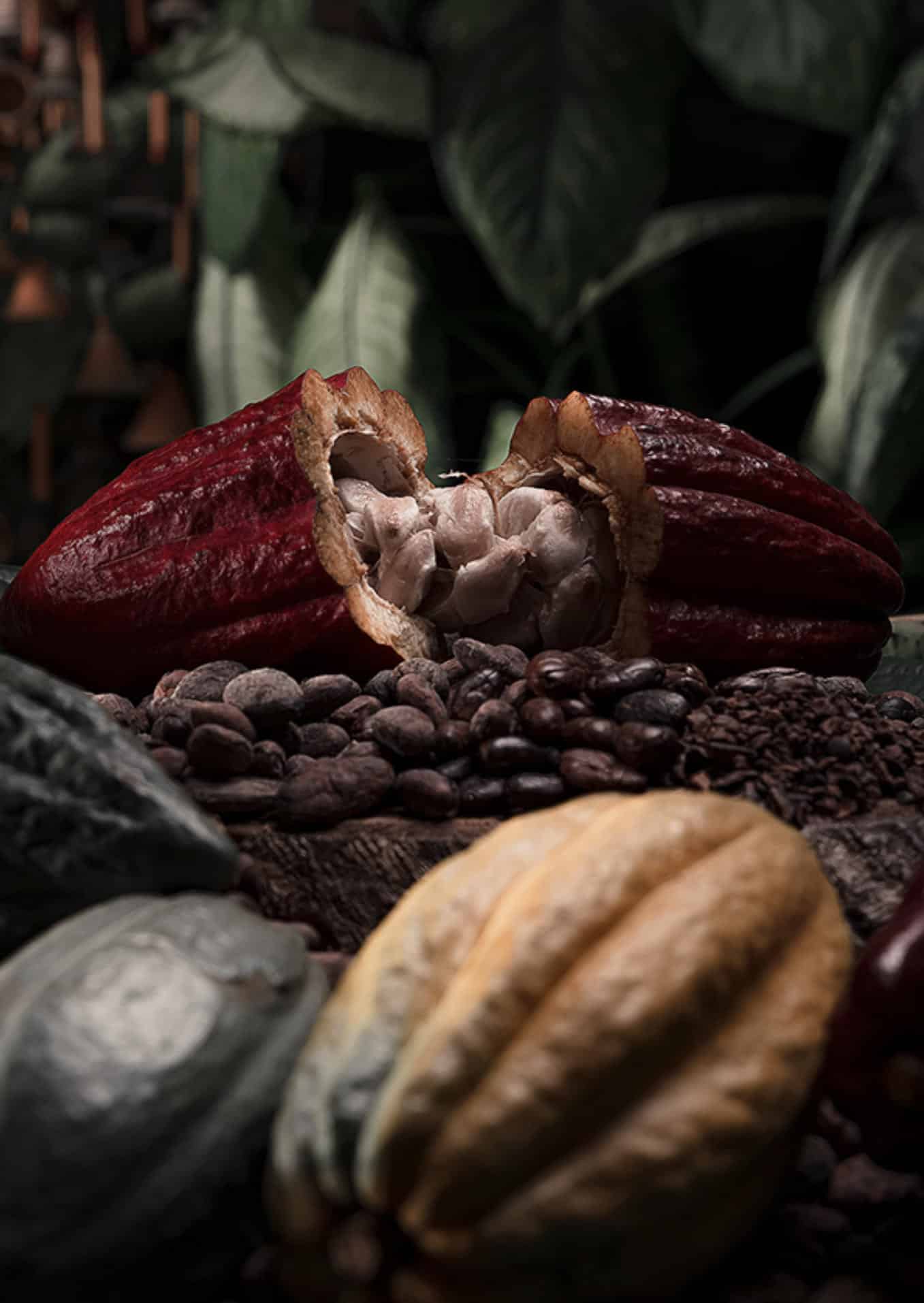Cacao is often celebrated as a superfood with numerous health benefits, ranging from mood enhancement to heart health. However, like any food or supplement, cacao is not without its potential downsides. Understanding these negatives can help you consume cacao responsibly and make informed decisions about its role in your diet or rituals.
In this article, we’ll explore the potential drawbacks of cacao, including health concerns, environmental impacts, and ethical considerations.
1. Health Concerns
While cacao is rich in nutrients, its bioactive compounds can cause issues for some individuals.
Theobromine Sensitivity
Cacao contains theobromine, a mild stimulant similar to caffeine. While theobromine can enhance focus and energy, it may also cause:
- Increased heart rate
- Restlessness or insomnia
- Nausea or headaches, particularly in individuals sensitive to stimulants
Digestive Issues
Cacao is high in fiber, which may cause gastrointestinal discomfort in sensitive individuals or when consumed in large amounts. Symptoms can include bloating, gas, or upset stomach.
Allergic Reactions
Although rare, some people are allergic to cacao. Reactions can range from mild (itching, rashes) to severe (anaphylaxis). If you have a history of chocolate allergies, exercise caution with cacao.
Interference with Medications
Cacao contains compounds that can interact with medications, including:
- Antidepressants: May amplify serotonin levels, which can lead to side effects when taken with SSRIs or MAOIs.
- Blood Pressure Medications: Cacao’s vasodilatory properties may lower blood pressure too much when combined with antihypertensives.
2. Caffeine Content
While cacao has lower caffeine levels than coffee, it still contains a small amount. For those who are highly sensitive to caffeine, cacao consumption could lead to:
- Jitters
- Increased anxiety
- Sleep disturbances
3. Overconsumption Risks
Moderation is key with cacao, as excessive consumption can lead to negative effects:
- Caloric Density: Cacao is high in calories and fat due to its natural cacao butter content. Overconsumption can contribute to weight gain if not balanced within a healthy diet.
- Heavy Metal Contamination: Some cacao products may contain trace amounts of heavy metals, such as cadmium or lead, due to soil contamination. Consuming large quantities over time could pose a risk.
4. Environmental Impacts
The production of cacao has significant environmental implications:
- Deforestation: In some regions, cacao farming has led to the destruction of rainforests, contributing to habitat loss and climate change.
- Soil Degradation: Intensive farming practices can deplete soil nutrients and reduce biodiversity.
- Water Usage: Cacao cultivation requires substantial water resources, which can strain local ecosystems.
5. Ethical Concerns
The cacao industry is fraught with ethical challenges, including:
- Exploitation of Farmers: Many cacao farmers are paid unfairly, leading to poverty and poor living conditions in cacao-producing regions.
- Child Labor: In some areas, cacao farming involves child labor, raising serious human rights concerns.
- Lack of Transparency: Without clear labeling or certifications, it can be difficult to ensure that cacao products are sourced ethically.
6. Cost
High-quality, ethically sourced ceremonial cacao can be expensive. For some, this cost may be a barrier to regular consumption or participation in cacao ceremonies.
7. Addiction or Dependence
While cacao is not addictive in the same way as substances like caffeine or alcohol, its mood-enhancing properties can lead to psychological reliance. Some people may develop a habit of using cacao as an emotional crutch, which can detract from addressing underlying issues.
How to Minimize the Negatives
- Consume in Moderation: Stick to recommended servings (20–30 grams of ceremonial cacao) to avoid overconsumption.
- Choose High-Quality Products: Opt for cacao that is organic, ethically sourced, and tested for heavy metals.
- Be Mindful of Timing: Avoid consuming cacao late in the day to prevent sleep disturbances.
- Listen to Your Body: Pay attention to how your body reacts and adjust your intake accordingly.
- Support Ethical Practices: Purchase cacao from companies that prioritize fair trade, sustainability, and environmental responsibility.
Final Thoughts
Cacao is a powerful and beneficial food when consumed responsibly, but it’s important to be aware of its potential downsides. By understanding the negatives—ranging from health concerns to environmental and ethical issues—you can make choices that align with your values and well-being.
At School of Cacao, we are committed to providing ethically sourced, high-quality ceremonial cacao. Our goal is to help you enjoy the benefits of cacao while minimizing its potential impacts.
Have you experienced any challenges with cacao consumption? Share your thoughts in the comments below!



